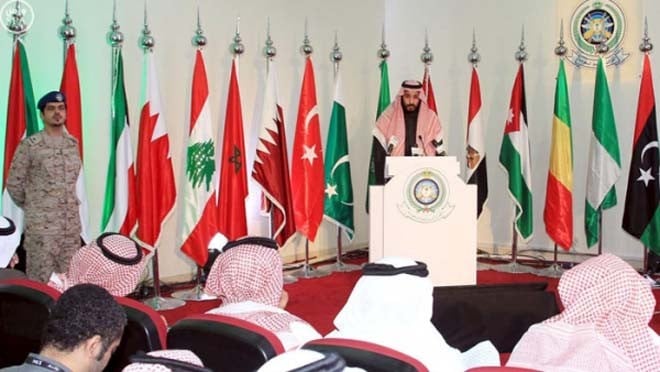

In theory, the recent formation by Saudi Arabia of a 34-nation coalition to fight not only the Islamic State but also other militant groups, presses all the right buttons. Experts have long said that until the Muslim (Arab, African, and Asian) states do not actively get involved in the fight against terrorism within and around their own borders, terrorism cannot be comprehensively defeated.
But there are some glaring anomalies in the coalition. The most obvious is the fact that Saudi Arabia, the leader of the coalition, has many similarities with its enemy, the Islamic State. First and foremost is religious ideology. Both the House of Saud and the Islamic State follow the Wahabi strain of Islam, a most radical, exclusionary and toxic interpretation of the religion.
And as countless counter-terrorism experts have said, terrorism cannot be defeated by military might alone. While militant groups have to be fought on ground, their radical ideology needs to be fought in the hearts and minds, by offering a strong counter narrative.
Pakistan knows this all too well. Countless operations against terrorism have failed over and over again because the other, more important ideological war was not being fought. Again, the Saudis have rung the right bells by saying that the coalition’s goals will include ‘confronting the ideology of extremism and stopping the flow of funds’, but as history has proven time and time again, this will require a massive overhaul of the religious indoctrination that the House of Saud has employed within and without for decades now.
Operationally, little is known on precisely how this coalition will operate apart from the fact that an operations centre will be set up in Riyadh. There are more questions than answers at the moment: Will a joint force be formed? Will there be ground troops involved? Or just air raids? Nothing is known at the moment. But inferences can be made, not only from the makeup of the current coalition, but also from Riyadh’s last efforts in coalition building, the one against the Houthi rebels in Yemen.
Ironically, at least two countries, Pakistan and Lebanon, initially claimed they were not aware of being included in the coalition. The Palestinians, for their part, said that they’re in need of help themselves, and not quite in a position to lend a helping hand. That these two countries have later agreed to play some part in the coalition is irrelevant, as experts believe that Riyadh first unilaterally put names on the list and then embarked on a tour to ensure these countries’ participation.
Pakistan, for its part, refused to take part in the Saudi-led invasion of Yemen, and it has now said it will ’do whatever it takes to defend the territorial integrity of Saudi Arabia’, which is a very polite way of saying, no we won’t be a part of any trans-Muslim Army. Egypt has also stayed away from committing troops. Both these two countries have their reasons for staying away. They are both battling terrorists within their own borders, and are also cognizant of the failure of the last Saudi coalition. But their military might and experience would have been invaluable.
A couple of countries are notable by their absence. Algeria has one of the most effective armies in North Africa, and has been battling al-Qaeda for over a decade. Oman, also wasn’t invited after refusing to take part in the coalition of the unwilling against Yemen. In their stead, to shore up the numbers, there are the invalids. At least one third of the countries named in the coalition have little to add militarily or strategically. These include: Benin, Chad, Comoros, the Palestinians, Togo, Gabon, Guinea, Mauritania, Somalia, and Djibouti.
On the flip side, some of the coalition members are actually rivals of Riyadh in other battlefields. Both Turkey and Qatar fall into this category, being long time supporters of the Muslim Brotherhood, which has been working towards toppling the Arab (and African Muslim) monarchies and dictatorships, to replace them with a democratic Islamic set up, much like they did in Egypt with former President Morsi.
Related article: Iran’s way
And then there are the Shia absentees. Syria, Iraq, Iran, (and Hezbollah) have all been excluded, when in fact they are the ones currently battling ISIS on the ground. Critics believe that the Sauds, in their fear of a rising Shia crescent, failed to grab a tremendous opportunity to unite the Muslims against Daesh. Instead, experts believe, they have chosen to further polarise the Islamic world.
And lastly, there is the dual matter of petrodollars. With the United States going forward with its deal with Iran, Riyadh feels betrayed. Iranian oil will soon enter the international market. And Tehran may have nuclear status within two decades. These two events will tremendously and permanently tilt the balance of power in the region away from Saudi Arabia. Something that Riyadh cannot fathom.
The Saudi coalition in Yemen was nothing more than a coalition against rising Iranian influence in the region and its latest one against the Islamic State is also the same. It is a show of strength, to itself, and the rest of the world, that Riyadh remains the centre of the Muslim world.